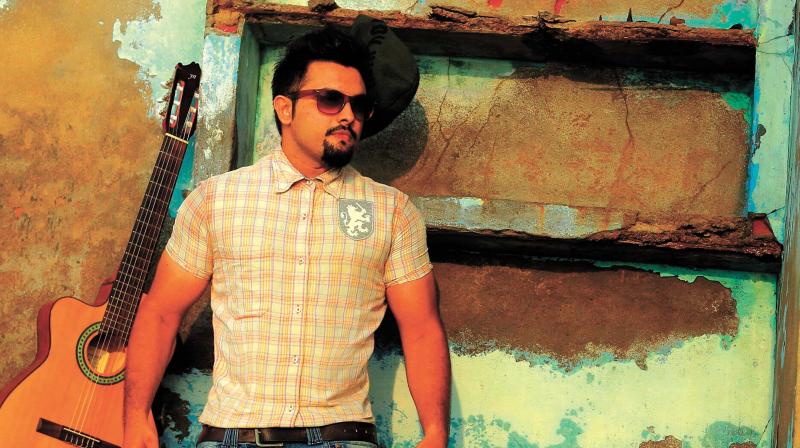The voice behind Neeye
Yazin Nizar has so far lent his voice for over 100 songs in all the four Southern languages.

Yazin Nizar sounds tired, his voice is full of pauses. It’s been a long drive from his home in Kollam to Chennai where he had taken off to for college. An MBA in finance and marketing that is over now. On Thursday night, a call comes to him, asking him about that song he sung with Sharanya Srinivas, the one that’s been doing the rounds on social media — Neeye. There have been three versions of it — Neeye in Tamil, Neene in Kannada and Neeve in Telugu. Yazin shakes the tiredness off his voice and tries to remember. Yes, Neeye, but that was a long time ago, he says.
The Tamil one, it was sung a lot before this video got made — a beautiful choreography featuring Shreya Deshpande and Niranjan Harish. Yazin was surprised to see this song that he had nearly forgotten about, come back alive on so many walls of Facebook, talked about and appreciated. He has sung over a 100 songs in all four South Indian languages by now and won a few awards too. There have also been many live gigs internationally — The US, Canada, Malaysia, London among them, but Neeye has brought new attention to this young Kollamkaran.“It is recently that they made the video, and the Kannada and Telugu versions were sung after that,” Yazin says.
The music director Phani Kalyan had known Yazin since Konjam Koffee Konjam Kaadhal, a kind of first for both of them. Yazin had just moved to Chennai and Sakkarakatti for Phani is the first song he sings in Tamil, but not the first to release. There have been quite a few Tamil songs after that but of course it had all begun in Kollam where he grew up. Classical music at the age of eight, and the first stages came in the temples of Kerala, for ganamelas. There were a few reality shows beginning with winning the Gandharva Sangeetham title on Kairali TV. Singer G. Venugopal, who hosted the show, brought him his first film song.
“In a film Punarjani, I sang an ashtapadi with him when I was about 12 years old,” Yazin remembers. He sang it for Pranav Mohanlal, who starred in the film. His first solo however came years later with Spanish Masala, and with Vidyasagar. “Recording for Vidyasagar sir was quite an experience. It was his song Vennila Chandanakkinnam that I had first sung in school and have always been singing in later years. But I was too young to know that then.” Meeting Ilaiyaraja was another such experience when he sang Okasaari o Vayyari for Abbayitho Ammayi this year.
But what he describes life-changing happened much before, when he was on stage for a reality show and the late legend M.S. Viswanathan had come. “He had amazing things to say about how I sing and said he would call me one day to record for his song and that moment when he said that is very special to me. It made me believe that I too can be a singer, the belief I did not have till then. It was a turning point.” Yazin met him a couple of times after that, and MSV had recognised him as the Malayali payyan who sang the Mohammed Rafi song Chahunga Main Tujhe.
Meeting these great musicians is what he counts as winnings from those reality shows. “The blessings of meeting the greats like Yesudas sir, Chitra chechi and mentors like George Peter, Ramesh Narayan sir, Sharreth sir. Sujatha chechi too, who is the sweetest person I know, is a mother figure to me.” The music directors he sung for have also become his mentors — including the likes of Ouseppachan and Bijibal and Shaan Rahman in Malayalam, Ghibran and Devi Sri Prasad in Tamil. The first Telugu song came in 2012, and then there was Kannada.
“Working styles are all different and some may like the singer improvising a bit in the song, some may not! It took time for me to realise that and act accordingly. Till about two years back, I was this messy guy who would just sing the way I like and improvise everything and anything. But with time and more recording experiences came the realisation that that’s not how it is done. Now I feel more content and confident on how to treat a new song, finding its soul rather than tearing it apart. I wish to keep getting better as a musician and as a human being.”

